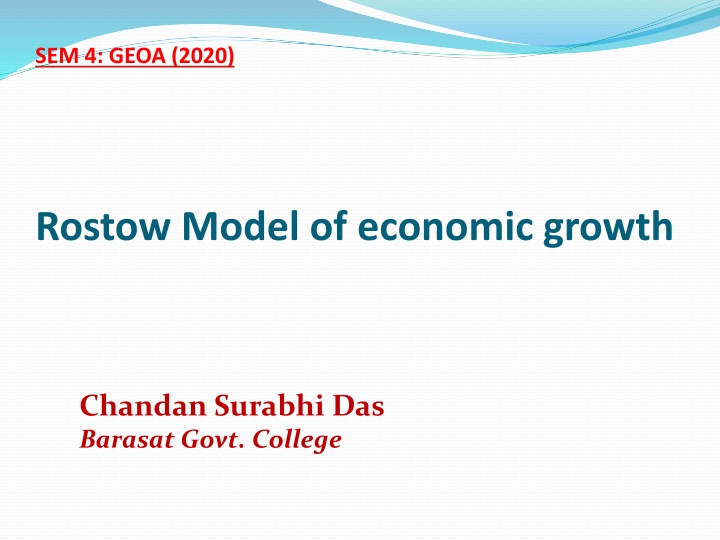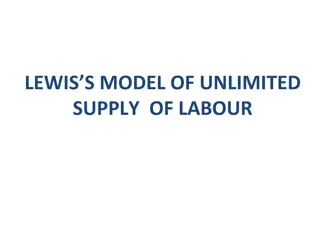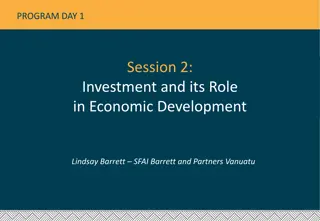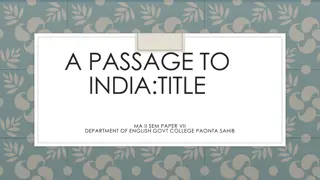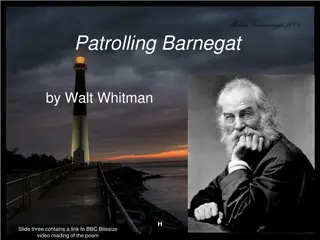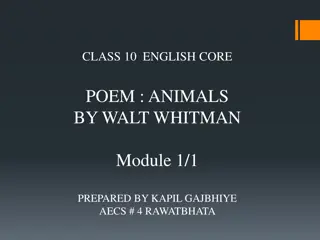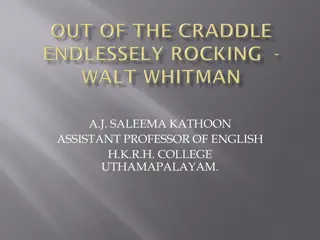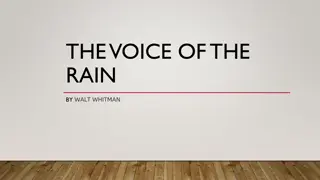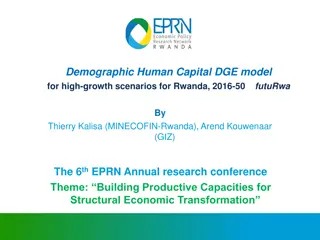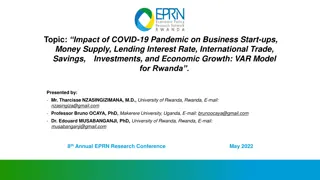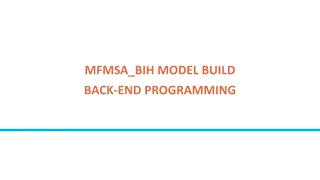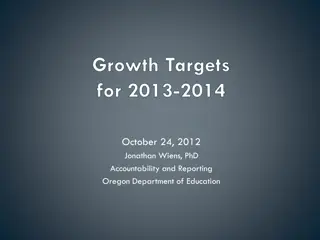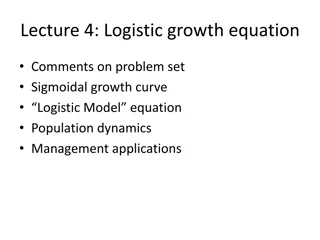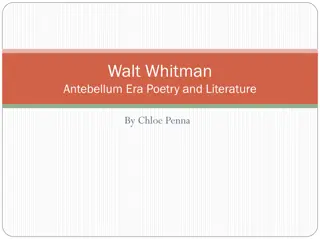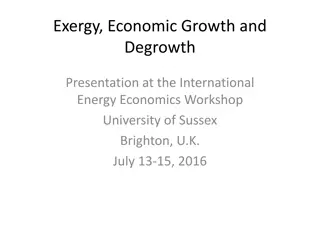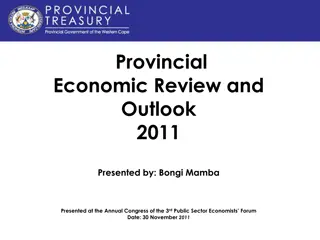Walt Whitman Rostow's Model of Economic Growth - A Historical Perspective
Walt Whitman Rostow, an economist, proposed the Stages of Economic Growth theory in 1960, outlining the five stages through which countries pass to achieve economic development. His model reflects Western capitalist ideologies and was influenced by Cold War politics. Rostow's theory aimed to guide developing nations towards growth while serving as a tool for U.S. foreign policy.
Download Presentation

Please find below an Image/Link to download the presentation.
The content on the website is provided AS IS for your information and personal use only. It may not be sold, licensed, or shared on other websites without obtaining consent from the author.If you encounter any issues during the download, it is possible that the publisher has removed the file from their server.
You are allowed to download the files provided on this website for personal or commercial use, subject to the condition that they are used lawfully. All files are the property of their respective owners.
The content on the website is provided AS IS for your information and personal use only. It may not be sold, licensed, or shared on other websites without obtaining consent from the author.
E N D
Presentation Transcript
SEM 4: GEOA (2020) Rostow Model of economic growth Chandan Surabhi Das Barasat Govt. College
Walt Whitman Rostow was an economist who developed a theory of how a country's economy develops and grows, and in 1960 he took a crack at addressing these issues in his book, The Stages of Economic Growth.
Five stages of economic development Walt Rostow took a historical approach in suggesting that developed countries have tended to pass through 5 stages to reach their current degree of economic development. Rostow penned "Stages of Economic Growth" in 1960, which presented five steps through which all countries must pass to become developed: 1) traditional society, 2) preconditions to take-off, 3) take-off, 4) drive to maturity and 5) age of high mass consumption.
Rostow's Model in Context: Merits Rostow's Stages of Growth model is one of the most influential development theories of the 20th century. Stages of Economic Growth" was published in 1960, at the height of the Cold War, Rostow was fiercely anti-communist and right-wing; he modeled his theory after western capitalist countries, which had industrialized and urbanized. Rostow promoted his development model as part of U.S. foreign policy. Rostow's model illustrates a desire not only to assist lower-income countries in the development process but also to assert the United States' influence over that of communist Russia.
Rostow assumes that all countries have an equal chance to develop, without regard to population size, natural resources, or location. Singapore, for instance, has one of the world's busiest trading ports, but this would not be possible without its advantageous geography as an island nation between Indonesia and Malaysia.
In spite of the many critiques of Rostow's model, it is still one of the most widely cited development theories and is a primary example of the intersection of geography, economics, and politics.
